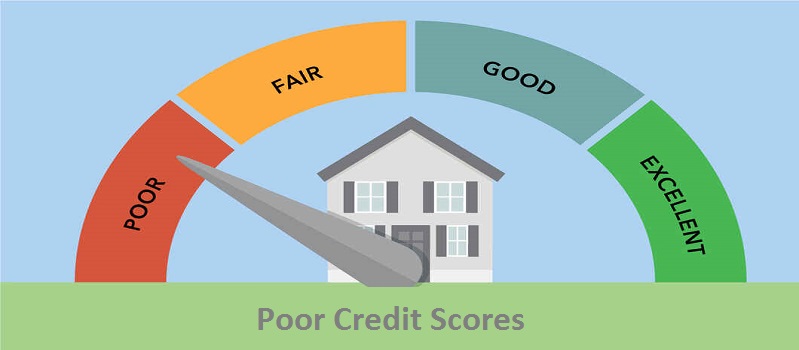Life has a funny way of throwing curveballs, doesn’t it? Financial resilience is basically our financial “safety gear” for those times. It means having the strength and readiness to bounce back from money troubles.
Think of it like this: it’s having a rainy day fund and the know-how to use it wisely. Now, why’s it so crucial? Life’s ups and downs don’t come with a warning label.
Maybe your car breaks down, or an unexpected bill lands on your doormat. That’s where this financial muscle we’ve built up comes into play. In simple terms, financial resilience isn’t just about having money in the bank.
It’s about having a game plan for life’s “oops” moments. Because let’s face it, setbacks will happen. But with the right prep, we can face them with a “got this” attitude.
Building an Emergency Fund: The First Line of Defense
Life’s unpredictable. One moment, everything’s calm, and the next, you’re hit with a sudden repair bill or medical emergency.
An emergency fund is that financial buffer that stands between you and these unexpected blows. It’s the stash you can lean on without derailing your long-term financial plans or drowning in debt.
- An emergency fund offers peace of mind, knowing you’ve got a backup.
- It prevents the immediate rush to credit cards, which can pile on interest.
- It gives you the freedom to make choices without financial pressures dictating your decisions.
Such funds aren’t just about numbers in a bank account; they’re about having choices when the going gets tough.
1. The Harsh Reality of Not Having a Safety Net
Imagine facing a sudden expense without a safety net. The stress, the sleepless nights, the desperate scramble for funds – it’s a situation no one wants to be in. For many, the immediate instinct is to turn to loans.
- Not having a fund can lead to debt spirals, borrowing from one source to pay another.
- The absence of a safety net can sometimes force people into bad choices.
- An over-reliance on loans might tarnish credit scores, making future borrowing challenging.
In such cases, the struggle isn’t just financial; it also takes a toll on mental well-being.
2. Navigating the Loan Landscape with Challenged Credit
Now, what happens if your credit’s seen better days, and mainstream lenders are giving you the cold shoulder?
This is where options like very bad credit loans with no guarantor requirement can help. There are no brokers involved in such loans! These loans cater specifically to those with a shaky credit history, offering a lifeline when most doors seem closed.
- Without the need for a guarantor, the application process is streamlined and less intrusive.
- Skipping the broker means direct interaction with lenders, which can sometimes offer better terms or quicker processes.
While these loans can be a beacon in stormy financial seas, they’re best approached with caution and a clear repayment plan.
3. Preventing Future Hiccups
Having navigated a financial hiccup, the next step is prevention. It’s a wake-up call to start building that emergency fund.
- Consistent savings, even small amounts, can accumulate over time.
- Automating savings, where a portion of your income goes directly into a savings account, can make the process effortless.
4. Diversifying Income Streams
Relying on just one job? That’s a bit risky. Think about it: what’s the backup plan if that job goes away? Having multiple ways to earn is like having several safety nets.
5. Simple Ideas, Big Change
More sources of money means more peace of mind. It’s like having many doors to escape from a room if one gets blocked. And extra cash is always nice. Maybe for that holiday you’ve been dreaming of, or just a safety stash.
6. Taking the First Step
Now, how does one add more income sources? Look around! Maybe you’ve got skills or hobbies. Love playing the guitar? Maybe give lessons on weekends. Good at crafts? How about selling them online? A world of side gigs is out there, waiting to be explored.
7. The Online World Awaits
The internet is a goldmine. There’s much to dive into, from selling products to offering services. Maybe start a small online store or teach a course. The key? Find what you love and see if you can make it pay.
8. Reducing High-Interest Debt
High-interest debt can feel like a rain cloud over your head, ready to pour any second. It starts innocently, maybe with a surprise car repair or a medical emergency.
Before you know it, those small droplets become a downpour, making daily financial life slippery and challenging.
9. When Credit Scores Don’t Play Nice
A not-so-great credit score can add to the rainy days. Traditional banks might just shut their doors, and the options seem limited. But don’t lose hope just yet.
This is where bad credit loans with guaranteed approval can help! There is no guarantor requirement! This might sound like a mouthful, but it’s essentially a financial umbrella for those stormy days.
- They’re designed especially for folks whose credit has seen better days.
- You don’t need a friend or family member to vouch for you.
- And the biggest perk? They’re geared towards approval, making them a beacon of hope.
10. Smart Steps for Using This Lifeline
While it’s tempting to grab the lifeline and sigh in relief, there are a few things to keep in mind:
- Understand the deal. Know what you’re signing up for, from interest rates to repayment terms.
- Have a plan. Think about how you’ll use the loan and how you’ll pay it back.
- Keep the bigger picture in mind. This loan is a tool to help you regain financial control, not just a quick fix.
Conclusion
Financial stress can be challenging for both the wallet and the mind. The weight of money problems can often feel crushing, but coping with this stress is vital to finding a way out.
First up, talk about it. Sharing concerns with a close friend or family can lighten the load. Secondly, take a deep breath and break the problem into chunks. Tackling one small bit at a time makes it more manageable. Self-care is vital. Find what calms you, whether it’s a walk in the park, meditation, or a hobby. Mental well-being plays a pivotal role in financial recovery.
A clear, stress-free mind can think rationally, make better decisions, and find paths previously unseen. So, in the storm of financial setbacks, let’s not forget to mind our minds.

Emma Anderson is a financial advisor at Quickloanslender who always believes in researching hard to know her clients’ financial problems. She takes the time to understand their financial wants and needs to write the blogs on them as the solutions. In her long 14 years of experience, she has written plenty of blogs on the financial and business sectors of the UK.
Emma Anderson has been recognised for her work in financial planning and her blogs are regularly published in the website of Quickloanslender. As far as her educational qualification is concerned, she has done Masters in Accounting and Finance, and done PG Diploma in Creative Writing.






